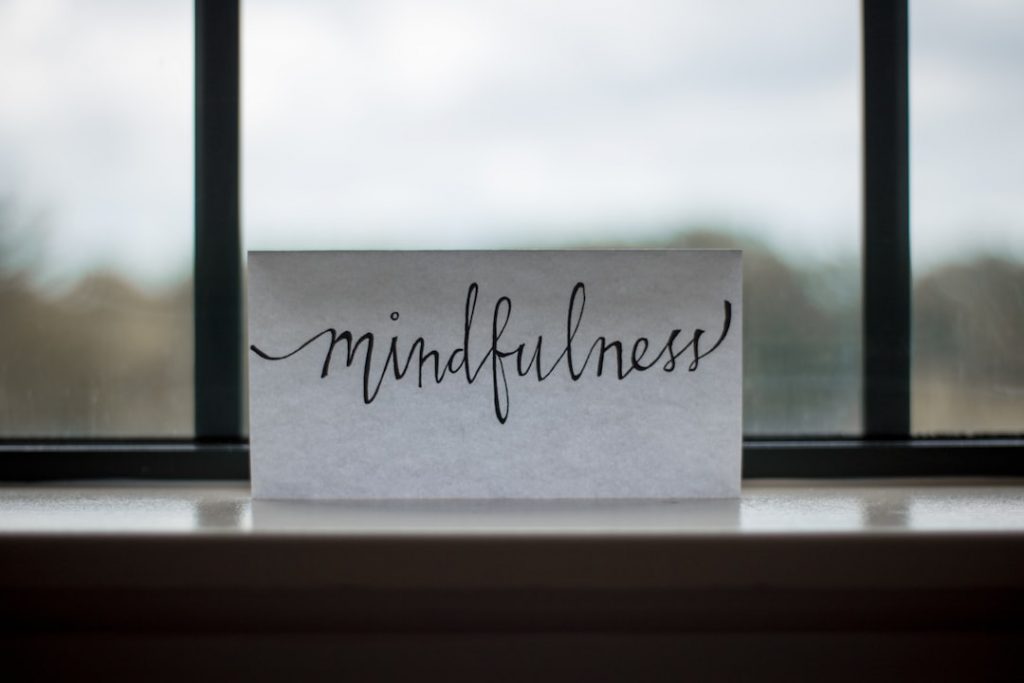East Meets West: Unlocking the Path to Self-Discovery through Spiritual Practices

In our quest for self-discovery, we often find ourselves drawn to spiritual practices that help us explore the depths of our being and connect with something greater than ourselves. These practices offer a pathway to inner transformation, personal growth, and a deeper understanding of our true selves. In this article, we will explore the intersection of Eastern and Western spiritual traditions and the various practices that can aid us in our journey of self-discovery.
Spiritual Practices for Self-Discovery
When it comes to self-discovery, there are several spiritual practices that can guide us on our path. These practices help cultivate self-awareness, promote introspection, and create a sense of connection to our inner selves and the world around us.
One such practice is mindfulness, which involves cultivating present-moment awareness and non-judgmental acceptance. Mindfulness allows us to observe our thoughts, emotions, and sensations without getting caught up in them. By developing this awareness, we can gain insights into our patterns of thinking, our reactions to various situations, and ultimately, a deeper understanding of ourselves.
Meditation is another powerful practice for self-discovery. There are various forms of meditation, such as mindfulness meditation, loving-kindness meditation, and transcendental meditation. Through meditation, we learn to calm the mind, focus our attention, and cultivate a state of inner stillness. This practice allows us to observe the fluctuations of the mind, gain clarity, and tap into our inner wisdom.
Yoga, a practice that combines physical postures, breath control, and meditation, is also a potent tool for self-awareness and self-discovery. The physical aspect of yoga helps us develop strength, flexibility, and balance in the body. Simultaneously, the breathwork and meditation aspects of yoga calm the mind and deepen our connection with ourselves. Through the practice of yoga, we can experience a greater sense of harmony between our body, mind, and spirit.
Journaling is a practice that involves reflecting on our thoughts, emotions, and experiences through writing. It is a powerful tool for self-reflection, self-expression, and personal growth. By putting our thoughts and feelings into words, we gain clarity and a deeper understanding of ourselves. Journaling also provides a space for us to explore our creativity, release emotions, and find solace in the written word.
Contemplation is another practice that plays a significant role in self-discovery. It involves engaging in deep reflection and introspection, allowing us to explore profound questions and seek understanding and meaning in life. Through contemplation, we create space for silence and stillness, enabling us to connect with our inner wisdom and intuition. Contemplation helps us cultivate a sense of purpose, meaning, and connection to something greater than ourselves.
Self-reflection is a fundamental aspect of self-discovery. It involves examining our thoughts, beliefs, values, and actions to gain deeper insights into ourselves. By engaging in self-reflection, we can become aware of our patterns of behavior, identify areas for personal growth, and align ourselves with our authentic selves. Self-reflection promotes personal growth, self-improvement, and a deeper understanding of our identity.
To illustrate the power of these spiritual practices, let’s consider the example of Sarah. Sarah, a busy professional, felt disconnected from herself and the world around her. She decided to incorporate mindfulness into her daily routine by practicing a short meditation every morning. Over time, Sarah noticed that she became more present, less reactive to stressors, and gained a deeper understanding of her thoughts and emotions. This newfound self-awareness allowed her to make conscious choices aligned with her values and live a more fulfilling life.
Comparison of Eastern and Western Traditions
Eastern and Western traditions offer unique perspectives and approaches to spiritual practices. While both traditions share the common goal of self-discovery, they differ in their emphasis and methods.
Eastern traditions, such as Zen Buddhism, Taoism, and Hinduism, often focus on interconnectedness, mindfulness, and acceptance of impermanence. These practices are deeply rooted in ancient wisdom and philosophies that have been passed down through generations. Eastern traditions encourage individuals to look within themselves, cultivate inner awareness, and seek enlightenment.
On the other hand, Western traditions, such as Christian contemplation, prayer, and self-examination, emphasize self-reflection, introspection, and moral character development. Western spiritual practices have been influenced by individualistic approaches and the pursuit of self-improvement. They encourage individuals to examine their thoughts, beliefs, and values, and strive for personal growth and alignment with their authentic selves.
It is important to note that these distinctions are not absolute, and there is often overlap between Eastern and Western traditions. Many individuals draw inspiration from both traditions and integrate practices from each into their personal spiritual journey.
To delve deeper into the significance of this East meets West dynamic, let’s consider the personal story of Michael. Michael, having grown up in a Christian household, was curious about Eastern philosophies and practices. He began exploring mindfulness meditation and found that it complemented his existing spiritual beliefs. By incorporating mindfulness into his daily life, Michael experienced a greater sense of peace, compassion, and connection to others. This integration of Eastern and Western practices allowed him to broaden his perspective and deepen his spiritual journey.
Benefits of Mindfulness, Meditation, and Yoga
Mindfulness, meditation, and yoga have been extensively studied and documented for their numerous benefits to physical, mental, and emotional well-being. These practices also play a crucial role in self-discovery by cultivating inner awareness and deepening the mind-body connection.
Mindfulness has been scientifically proven to reduce stress, improve focus and attention, and enhance self-awareness. By practicing mindfulness, individuals can learn to observe their thoughts and emotions without judgment, allowing them to develop a greater understanding of their inner world. Mindfulness also promotes emotional regulation and self-compassion, helping individuals navigate challenges and difficult emotions with more ease and resilience.
Meditation, whether it’s mindfulness meditation, loving-kindness meditation, or transcendental meditation, offers a multitude of benefits for self-discovery. Regular meditation practice reduces anxiety and depression, promotes emotional well-being, and increases self-compassion. Through meditation, individuals can quiet the mind, gain insights into their thoughts and emotions, and develop a greater sense of inner peace and clarity.
Yoga, with its combination of physical postures, breath control, and meditation, offers both physical and mental benefits. The practice of yoga enhances physical and mental well-being, reduces stress, and improves flexibility and strength. By engaging in yoga, individuals can deepen their self-awareness, cultivate a sense of presence, and experience a greater sense of harmony within themselves.
To illustrate the benefits of these practices, let’s consider the example of Alex. Alex, a college student, struggled with anxiety and difficulty focusing. He decided to incorporate mindfulness and meditation into his daily routine. Over time, Alex noticed a significant reduction in his anxiety levels and an improvement in his ability to concentrate. He also gained a deeper understanding of his thought patterns and learned to approach challenges with greater clarity and calmness. Through the practice of mindfulness and meditation, Alex experienced a profound transformation and a newfound sense of self-discovery.
The Power of Journaling and Contemplation
Journaling and contemplation are powerful tools for self-reflection, personal growth, and deepening our understanding of ourselves and the world. These practices provide a space for introspection, self-expression, and the exploration of profound questions and ideas.
Journaling, through the act of writing down our thoughts, emotions, and experiences, helps us gain clarity and insight into ourselves. It enables us to reflect on our thoughts, identify patterns, and explore our deepest desires and fears. Journaling also serves as a form of self-expression, allowing us to freely explore our creativity, release emotions, and find solace in the written word.
Contemplation, on the other hand, involves engaging in deep reflection and introspection. It encourages us to explore profound questions and seek understanding and meaning in life. Through contemplation, we create space for silence and stillness, allowing us to connect with our inner wisdom and intuition. Contemplation helps us cultivate a sense of purpose, meaning, and connection to something greater than ourselves.
To exemplify the power of these practices, let’s consider the story of Maya. Maya, a writer, found solace in journaling during a difficult period in her life. Through her journaling practice, Maya was able to gain clarity on her emotions, process her experiences, and find healing. She also discovered a newfound sense of purpose and direction in her life. Inspired by her journaling journey, Maya began exploring contemplative practices and found that they deepened her understanding of herself and the world around her.
The Role of Self-Reflection in Self-Discovery
Self-reflection plays an integral role in the journey of self-discovery. It involves examining our thoughts, beliefs, values, and actions to gain deeper insights into ourselves. By engaging in self-reflection, we can become aware of our patterns of behavior, identify areas for personal growth, and align ourselves with our authentic selves.
Self-reflection allows us to explore the deeper layers of our being and gain a clearer understanding of our desires, motivations, and fears. It helps us uncover our true values and beliefs, enabling us to make choices that align with our authentic selves. Through self-reflection, we can identify patterns that may be holding us back, recognize our strengths and weaknesses, and develop strategies for personal development.
To exemplify the significance of self-reflection, let’s consider the story of David. David, a young professional, felt lost and disconnected from his true purpose. He decided to embark on a journey of self-reflection to gain clarity on his path. Through regular self-reflection exercises, such as journaling and meditation, David gained a deeper understanding of his values, passions, and aspirations. This newfound self-awareness allowed him to make significant changes in his career and personal life, ultimately leading to a more fulfilling and authentic existence.
Incorporating Spiritual Practices into Daily Life
Incorporating spiritual practices into our daily lives is essential for nurturing our self-discovery journey and maintaining a sense of balance, peace, and connection. Here are some practical tips to help integrate these practices into our daily routines [2]:
Creating a sacred space can provide a physical reminder of our commitment to self-discovery. Designate a specific area in our home or workplace that is dedicated to our spiritual practices. This sacred space can be as simple as a cushion or a small altar with meaningful objects. In this space, we can engage in our chosen practices and set the intention for our self-discovery journey.
Setting a schedule for our spiritual practices is essential for consistency. Establishing a regular time for practice, whether it’s in the morning, evening, or during breaks throughout the day, ensures that it becomes a regular part of our routine. Consistency allows us to deepen our self-discovery journey and reap the benefits of these practices.
Starting small is key when incorporating spiritual practices into our daily lives. Begin with short practice sessions and gradually increase the duration over time. It’s better to have a consistent and manageable practice, even if it’s just a few minutes a day, than to overwhelm ourselves with long sessions that are difficult to maintain. Starting small allows us to build the habit and gradually expand our practice as we feel comfortable.
Overcoming barriers is an essential aspect of integrating spiritual practices into our daily lives. Common obstacles, such as lack of time, distractions, and self-doubt, can hinder our commitment to practice. By acknowledging these barriers and finding ways to overcome them, such as setting boundaries, minimizing distractions, and cultivating self-discipline, we can ensure that our spiritual practices become a priority in our lives.
Integrating spiritual practices into our daily activities is a powerful way to infuse these practices into our lives. We can find ways to incorporate mindfulness into everyday tasks, such as washing the dishes or walking in nature. By infusing our daily activities with spiritual awareness, we create opportunities for self-discovery and connection throughout the day.
To provide a practical example of incorporating spiritual practices into daily life, let’s consider the story of Emma. Emma, a busy parent, struggled to find time for her spiritual practices amidst her hectic schedule. She decided to integrate mindfulness into her daily routine by practicing mindful eating during meals. She focused on savoring each bite, being fully present with the taste, texture, and aroma of her food. This simple practice allowed Emma to cultivate mindfulness and connect with the present moment, even in the midst of her busy life.
Personal Stories and Examples of Self-Discovery
Personal stories and examples provide inspiration and insight into the transformative power of spiritual practices for self-discovery. They offer glimpses into the experiences of individuals who have embarked on a similar journey and can serve as guides and sources of encouragement.
For instance, Jane, a young artist, found solace and inspiration in her journaling practice. Through her writing, she discovered her true passion for creativity and self-expression. This realization led her to pursue a career in art, ultimately bringing her a deep sense of fulfillment and purpose.
Another example is Mark, who had always felt disconnected from his spirituality. Through the practice of meditation, he found a sense of peace and inner stillness that had eluded him for years. This newfound connection to his inner self allowed him to navigate life’s challenges with greater ease and grace.
These personal stories and examples highlight the transformative power of spiritual practices for self-discovery. They remind us that we are not alone on our journey and that there is immense potential for growth and transformation within each of us.
Exploring Eastern Traditions for Self-Discovery
Eastern traditions, with their rich cultural heritage and ancient wisdom, offer profound insights and practices for self-discovery. Let’s delve into the significance of Eastern traditions and explore the various practices they offer.
Zen meditation, rooted in Zen Buddhism, is a practice that emphasizes mindfulness and the cultivation of presence. Through the practice of sitting meditation, individuals can develop a deep sense of awareness and a direct experience of reality. Zen meditation encourages individuals to let go of attachments, surrender to the present moment, and find liberation from suffering.
Mindfulness in Buddhism is another practice that plays a prominent role in self-discovery. The teachings of the Buddha emphasize the importance of mindfulness in cultivating inner awareness and developing wisdom. Mindfulness meditation, as practiced in Buddhism, involves paying attention to the present moment with non-judgmental awareness. This practice allows individuals to observe the impermanence of all phenomena and develop a deeper understanding of the nature of reality.
Yoga, originating from Hinduism, offers a holistic approach to self-discovery and well-being. It combines physical postures, breath control, and meditation to harmonize the body, mind, and spirit. Through the practice of yoga, individuals can cultivate self-awareness, develop physical strength and flexibility, and experience a greater sense of inner peace and balance.
To gain further insights into Eastern traditions for self-discovery, let’s consider the teachings of Thich Nhat Hanh, a renowned Zen Buddhist monk. Thich Nhat Hanh’s teachings emphasize the practice of mindfulness in everyday life. His teachings offer practical guidance on how to cultivate mindfulness in activities such as walking, eating, and communicating. By embracing these practices, individuals can deepen their self-discovery journey and experience a greater sense of peace and connection.
Exploring Western Traditions for Self-Discovery
Western traditions, with their unique perspectives and practices, also offer valuable insights and approaches to self-discovery. Let’s explore the significance of Western traditions and the practices they offer.
Christian contemplation, a practice rooted in Christian spirituality, involves deep reflection and introspection. Contemplative prayer, often practiced in monastic settings, encourages individuals to enter into a state of silence and stillness, allowing them to connect with the divine and gain deeper insights into themselves.
Self-examination, a practice found in various Western spiritual traditions, involves reflecting on one’s thoughts, actions, and motivations. This practice encourages individuals to examine their beliefs, values, and character in order to foster personal growth and alignment with their authentic selves.
To gain further insights into Western traditions for self-discovery, let’s consider the teachings of Thomas Merton, a Trappist monk and writer. Merton’s writings on contemplation and solitude offer valuable insights into the Western approach to self-discovery. His works emphasize the importance of silence, solitude, and deep reflection as catalysts for inner transformation and connection with the divine.
By exploring both Eastern and Western traditions, individuals can draw inspiration from a diverse range of practices and philosophies. This integration of Eastern and Western approaches can enrich our self-discovery journey and allow us to find practices that resonate with our unique needs and beliefs.
Cultivating a Personal Spiritual Practice
Cultivating a personal spiritual practice is a deeply personal and individualized process. It involves aligning with our values and beliefs, setting intentions, creating rituals, and seeking guidance and support.
Aligning with our values and beliefs is essential for a meaningful and authentic spiritual practice. By identifying our core values and beliefs, we can choose practices that resonate with our true selves and guide us on our self-discovery journey. This alignment allows us to live in harmony with our values and find greater fulfillment and purpose.
Setting intentions provides clarity and direction on our self-discovery journey. By clarifying our intentions and goals, we can create a roadmap for personal growth and transformation. Intentions act as guideposts, reminding us of what we want to cultivate and embody in our lives.
Creating rituals adds depth and sacredness to our spiritual practice. Rituals can be as simple as lighting a candle, reciting a mantra, or engaging in a specific practice at a designated time. These rituals create a sense of sacred space and help us transition into a state of presence and connection with the divine.
Seeking guidance and support from external resources can enhance our self-discovery journey. Books, podcasts, and online communities can provide valuable insights, teachings, and practical guidance. By learning from others who have walked a similar path, we can gain inspiration, knowledge, and a sense of community.
At this point, it is important to acknowledge the resources and tools available on Spiritual Alchemy that can support the cultivation of a personal spiritual practice. Spiritual Alchemy offers a wealth of information, articles, techniques, and guides to help individuals explore and understand various spiritual practices. The website’s podcast and online shop provide additional resources for those seeking further guidance on their self-discovery journey.
In conclusion, the integration of Eastern and Western spiritual practices offers a rich tapestry of tools and insights for self-discovery. Mindfulness, meditation, yoga, journaling, contemplation, and self-reflection are powerful practices that can guide us on our journey of self-discovery. By incorporating these practices into our daily lives and cultivating a personal spiritual practice, we can deepen our understanding of ourselves, align with our authentic selves, and live a life filled with purpose, meaning, and fulfillment. Explore Spiritual Alchemy for further guidance, resources, and support on your self-discovery journey. Take the first step towards self-discovery and embark on a transformative path of personal growth and inner exploration.
Visit the Spiritual Alchemy website for more details and to access the wealth of resources available to support your spiritual journey.









